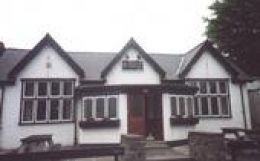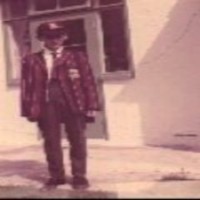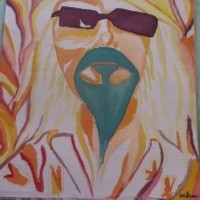Schooldays remembered
Llandaff is a city within the city of Cardiff and it is also a village with a green and a cross and a mulberry tree. Even today it still retains its character and remnants of its past. It has a different atmosphere to the rest of Cardiff. There are links with the past and visual reminders of days gone by.

Llandaff Schooldays - memories of childhood in a South Wales village
by BardofEly
Schooldays in the village of Llandaff as remembered by Steve Andrews the Bard of Ely. Llandaff is a city within a city as well as a village.
Llandaff Institute used to be my junior school
A village school
 |
Junior School in Wales
Schoolday memories
I went to school there at the age of five at the Church of Wales Junior School in the high street. It was in the white-walled village institute for the lower years and then in another building further down the road for the older children.
I remember the depressing grey stonewalls and steps and the toilets, which were by the playground. I don't remember much more about it and what I do recall are mainly bad memories. They say that schooldays are the best days of your life but mine were anything but.
The first teacher I had was called Miss Hobbs and as far as I can tell she hated me from the first day she saw me. She was tall and stern and a no-nonsense type. I am sure I made this bad impression she had of me worse by one day saying I thought she was stupid, because she responded by hitting me in the hand with a wooden cane. Miss Hobbs asked me what I thought of that. I thought it was stupid too and said so!
In those days teachers were allowed to do this - corporal punishment was permitted and the idea was to knock some sense into you. It never worked with me! I can't remember why she caned me but as the red mark stung across my palm I remember thinking how brutal this was and how much I hated this place called school.
I never really changed my opinion because all through my schooldays I found that I was persecuted by other boys who were bullies and by teachers and headmasters who were the same.
Going home was an escape but even then I might get adults who were relatives or my parents' friends and neighbours asking me how I liked school. I used to say I hated it and noticed that this was not the answer they wanted.
I soon realised that this was the case with other questions and I soon got to resent having to answer. It appeared to me that adults only wanted answers that confirmed how well everything was supposedly going. They didn't want to hear the truth, whilst at the same time I was being brought up to always be an honest boy.
I failed to get on with most of the children my age too, and if I hadn't by then discovered a passion in life, my days would have been even worse than they often were. I had become totally fascinated by nature, by the insects in the garden and by wild flowers, by newts and tadpoles in the pond in Thompson's Park where mum used to take me. Plants and animals and wild places became my world.
I started to keep small creatures as pets and also to collect wild flowers and identify them in books I asked my parents to get for me. I remember clearly a small green-painted angle-framed tank I had a baby common newt in. I took pride in making a home for the little animal with green cushions of moss, damp dark soil and bark and stones to hide under.
Best Caterpillar books to buy
Caterpillars of butterflies and moths
 | Clearwater Butterfly Live Painted Lady Butterflies - 10 Live Caterpillars - Live Caterpillars to ... Clearwater Butterfly Company Only $23.99 |
 | Insect Lore Cup of Caterpillars Basic – 5 Live Painted Lady Caterpillars with Food – Refill Kit f... Insect Lore Only $14.99 |
 | Insect Lore Butterfly Garden Kit, Painted Lady Butterfly Kit with Voucher for Live Caterpillars, ... Insect Lore |
Caterpillars
I started to keep caterpillars in jars and watch them go through all their changes to emerge as a beautiful moth or butterfly. Sometimes even though I fed them the right food and all appeared to be going well, the adult was not to appear because the caterpillar had been parasitised by an ichneumon fly that lived inside its skin eating way at it and leaving its vital organs until last. Just like in the modern film Alien an ugly fly or wasp would hatch out from the cocoon, but I found this fascinating too.
I was learning early in life that nature had a seemingly dark side, and that just like in human life, everything didn't always go along happily and, as you wanted. I remember an incident that illustrated this well.
I had been keeping a dragonfly nymph in some mud and water in a plastic bowl in which I fed it small worms and finally it had climbed out and got ready to complete its metamorphosis. It was a lovely sunny day on which the magnificent adult dragonfly emerged and dried out its shining transparent wings. Its body was ringed in black and golden yellow and it was one of the most beautiful insects I had ever seen.
I had been feeding it and looking after it for many months and felt so proud that this was what I had helped bring about. I was showing it to my mum and dad and we were looking at it as its wings dried out perfectly.
And then the moment I will never forget happened - as the beautiful insect made its first fluttering flight across the green lawn, a small brown bird swooped swiftly over and caught it in its beak. Life for my magnificent dragonfly was over and it was such an anticlimax to the whole experience that brought floods of tears to my eyes.
Mother Nature
But terrible as this seemed I knew the small bird had to eat and it was instances like this that taught me that how we people see is not how things are, or how Mother Nature works.
The next teachers I had at school were a Miss Dee, a Mrs Duggan and followed by a Mr Sutton and at least with them I wasn't getting caned and marked down. Looking at my reports you could see how much Miss Hobbs didn't like me because all my marks were considerably lower when I was in her class.
But things were looking up a bit with friends. There were a few boys I got on with. There was David who lived up the hill in Fairwater Grove where my family lived. He was quite interested in insects and lizards and newts.
Once, I think because it felt like an adventure, David and I walked seven miles all the way to Swanbridge, a beach my parents had often taken me to in the car. It was a long walk but once we had got about half way the only option that came to mind was to carry on.
Neither of us thought about our parents who would be frantically worried about us, considering we were just supposed to be out in the back lane. But when we reached our destination we contacted them by phone to tell them where we were.
Over the road from David lived a boy called Roger. He was a year older but I got on well with him and he would accompany us up Fairwater Park pond, or the Dell, as we called it, where we would look for newts and other aquatic creatures. In those days the three species of British newt - the smooth, palmate and great crested - were all common there, as were strange insects such as water scorpions and great diving beetles, and even the blood-sucking medicinal leech.
Wading about in the weedy waters, parting the grasses and reeds to see what we could capture was what life was about. I was horrified to find that there were other boys who didn't see the small water pond creatures as marvels of nature like we did, but rather the crested newts were prey to be hunted, and then deprived of any means of escape they were thrown on the grassy banks and became targets for sheath and pen-knife throwing contests.
These types of boys were not only a danger to the wildlife but were bullies and best avoided. These were the types of children I learned to shun and to be saddened by.
These boys killed great crested newts that they called salamanders, and leeches that they called blood-suckers. In their own small way they contributed to why these animals are so rare now - the crested newt is on the endangered species list and the medicinal leech is almost extinct in Wales. Boys will be boys, they say, but I knew I could never be a boy like them.
Over 30 years later, I met with Roger again and he told me it was me that had showed him so many things about nature, so much that he was grateful for in his life, which like mine had fallen apart as an adult. Roger had been diagnosed as bipolar.
Many years later, David had become a Moonie, a member of the cult run by the charismatic Reverend Moon. As small boys enjoying catching newts in a pond we had no inkling of what out future would hold. I ended up in a cult too, but more about that later.
Note: This is what I have written so far for my planned autobiographySeemed a good idea.
Copyright © 2012 Steve Andrews. All Rights Reserved.
Best books about Mother Nature
The Natural World
 | Mother Nature - Organic Black Seed Oil Capsules, Cold Pressed, 2% TQ, 100% Turkish-Black Cumin Ni...Madre Nature, Mother Nature Organics / Only $32.95 |
 | Mother, Nature: A 5,000-Mile Journey to Discover if a Mother and Son Can Survive Their DifferencesConvergent Books / |
 | Mother Nature USDA Organic Moringa Seed Oil, 100% Pure, Cold-Pressed, Unrefined Oil for Face, Ski...Madre Nature,Mother Nature Organics Superfoods ... / Only $25.95 |
You might also like
Frogs need saving too so Save The FrogsFrogs are a well known amphibian that used to very common all around the worl...
Who is the Bard of Ely? Find out in his WizzographyWizzography for The Bard of Ely whose real name is Steve Andrews. Here you ca...



 What to see and do in Icod de los Vinoson 06/28/2016
What to see and do in Icod de los Vinoson 06/28/2016
 Herbs of the Sun, Moon and Planets is the follow up to Herbs of the Northern Shamanon 10/03/2015
Herbs of the Sun, Moon and Planets is the follow up to Herbs of the Northern Shamanon 10/03/2015
 Music for Pagan Weddingson 03/07/2013
Music for Pagan Weddingson 03/07/2013
 Los Silos is part of Tenerife’s Low Island or Isla Bajaon 02/23/2013
Los Silos is part of Tenerife’s Low Island or Isla Bajaon 02/23/2013



Comments